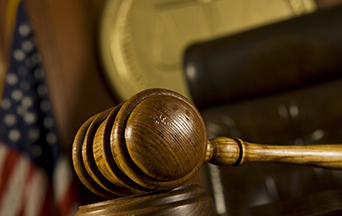 Nearly one year ago, daily communicants across California were shocked when their priests announced from the pulpit that public sacraments would be suspended until further notice. Several weeks later, the state imposed one of the most strict lockdowns in the country.
Nearly one year ago, daily communicants across California were shocked when their priests announced from the pulpit that public sacraments would be suspended until further notice. Several weeks later, the state imposed one of the most strict lockdowns in the country.
For months, California Catholics were forced to search for clandestine access to the sacraments or be deprived of them. For Holy Communion, the only options were attending a private Mass or making some other special arrangements. The circumstances surrounding confession were equally bleak, although many secular and religious priests defied lockdown orders so that they could care for their flock.
Sadly, while many bishops remained silent or even defended the situation, hundreds of protestant ministers across the state rallied together to pressure the governor to reopen the churches. The Catholic Church was not without its warriors. San Francisco’s Archbishop Salvatore Cordileone led high-profile protests against the restrictions, and lay organizations like the American Society for the Defense of Tradition, Family and Property (TFP) launched petition campaigns demanding that the Church be given the same rights as other essential organizations.
Eventually, the state of California and certain reluctant prelates had to acquiesce, and churches across the state reopened to one degree or another. Sadly, most of the faithful were forced to remain outside of their church buildings to receive the sacraments, even though Californians could congregate inside stores and even marijuana dispensaries.
10 Razones Por las Cuales el ìMatrimonioî Homosexual es DaÒino y tiene que Ser Desaprobado
Not satisfied with churches being granted inferior status, two southern California protestant churches – South Bay United Pentecostal Church and Harvest Rock Church – brought a case before the Supreme Court arguing that inside worship services should be allowed. They cited the precedent established in an earlier case brought to the Supreme Court by the Diocese of Brooklyn. The resulting decision was a victory for the Church’s rights in which the court found no basis for the restrictions.
Finally, on February 5, the Supreme Court ruled that Californians could resume legal worship inside their churches. However, the court allowed the State to maintain its restrictions on how many people can be inside a building. The ban on singing and chanting will be open for review.
The court was divided. Justices Clarence Thomas and Neil Gorsuch argued that the churches should be granted all their requests, including determining capacity limits and singing. Citing the hypocrisy in restrictions, they said, “if Hollywood may host a studio audience or film a singing competition while not a single soul may enter California’s churches, synagogues, and mosques, something has gone seriously awry.” Justice Alito also joined them, albeit with the stipulation that the state of California had 30 days to justify their regulations on singing.
For his part, Chief Justice Roberts pointed out that “the State’s present determination—that the maximum number of adherents who can safely worship in the most cavernous cathedral is zero—appears to reflect not expertise or discretion, but instead insufficient appreciation or consideration of the interests at stake.”
Although agreeing with reopening indoor worship, Justices Kavanaugh and Barrett supported the state’s prohibition on singing. However, they kept the door open for another argument against the ban when they said that, “Of course, if a chorister can sing in a Hollywood studio but not in her church, California’s regulations cannot be viewed as neutral.”
 Learn All About the Prophecies of Our Lady of Good Success About Our Times
Learn All About the Prophecies of Our Lady of Good Success About Our Times
As expected, the remaining liberal justices – Sotomayor, Kagan and Breyer – dissented. They argued that the State had the right to restrict religious services in the same way that it can regulate secular activities, which they considered to be on equal constitutional footing and in some cases “less dangerous” than religious worship.
Praising the decision, the San Francisco Archbishop stated, “This is a very significant step forward for basic rights. This decision makes clear we can now return to worshiping safely indoors without risk of harassment from government officials… As Christians, we are members of a Church, which literally means an assembly of people coming together to worship God. This is our identity; it is in our very nature to gather in person to give honor and glory to God. And especially as Catholics, we know that our worship cannot be live-streamed: there is no way to give Communion or any of the other sacraments via the Internet.”
Although not a full victory, Catholics across the state are rejoicing at the decision. It remains to be seen how it will be implemented. However, it is an important step in the battle for the rights of the Church in California.
Photo Credit: © moodboard – stock.adobe.com

